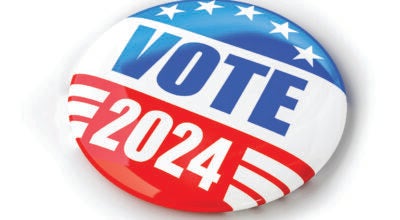Voting act partially voided
Published 2:00 am Wednesday, June 26, 2013
The Rev. H.K. Matthews said his knee was hurting Tuesday morning.
That’s where the civil rights leader was beaten in 1965 as he crossed the Edmund Pettus Bridge in Selma, on the bloody Sunday when a march turned violent and led to passage of the Voting Rights Act.
Tuesday, the U.S. Supreme Court struck down Section 4 of the act — the formula and map for Section 5, which requires preclearance of voting districts in most of the South.
“I think it is a dark day, especially for those of us, for me, who were involved and engaged to keep from being disenfranchised,” Matthews said. “For the Supreme Court to strike down any portion is a blow to civil rights and to human rights.”
The Supreme Court’s decision — in a case brought by Shelby County in Alabama — leaves preclearance by the U.S. Justice Department intact but allows Congress to determine which areas of the country still need it.
Matthews said he doubts Congress will undertake the measure.
“Congress is not going to come up with anything,” he said.
President Barack Obama said Tuesday he is “deeply disappointed” by the ruling and will call on Congress to enact legislation protecting the right to vote for all.
Alabama is one of nine states that has had its voting procedures reviewed by the Justice Department.
Alabama Attorney General Luther Strange said he has concluded that the state is no longer subject to the preclearance requirement.
“We expect significant savings for Alabama taxpayers because neither the state nor local governments will have to expend time, money and effort on submitting routine changes to voting laws to Washington, D.C., for approval,” Strange said.
Secretary of State Beth Chapman, a Republican, praised the decision by the conservative majority of the court.
“We are not the same state we were decades ago, and I am glad that the majority of the Supreme Court recognizes that fact,” Chapman said. “Alabama has made great progress in our elections process.”
Chapman said a provision of the Voting Rights Act still exists where issues of discrimination can be prosecuted.“If there is a time or circumstance where a voter feels there has been any discrimination regarding the elections process, then Section 2 of the Voting Rights Act will provide a way for that case to be heard as it should,” Chapman said.
But Matthews said Alabama — and other states — still have a long way to go before the provisions in the Voting Rights Act are not needed.
“It troubles me that there are people who would oppose an act that is meant to guarantee voting rights for all,” he said. “The political climate in Alabama is changing. There are people whose journey, whose aim, has always been to turn back the hands of time.”
Matthews said he thinks some in Alabama have been “lulled to sleep” by the election of a black president and other significant changes.
“We thought we had arrived,” he said. “We’re not there yet.
“I did pay a price on that Edmund Pettus Bridge. We wanted and were meant to have the right to vote.”





